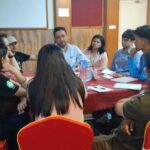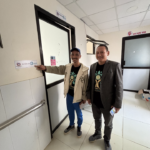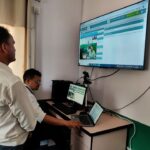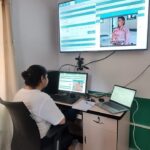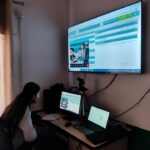Karnali Province
TELEMEDICINE
Improvement of health infrastructure

Place
6 districts in Karnali Province

By
Implementation by Chay Ya Nepal,
Karnali Province,
6 provincial hospitals

Partners
Ministry of Social Development,
Chay Ya Liechtenstein,
Chay Ya Switzerland,
Chay Ya Austria

When
2024 - 2026

For
more than 500,000 inhabitants

Status
Ongoing
Project
In the remote province of Karnali, one of the least developed regions of Nepal, there is an urgent need for better medical care. With a high poverty rate, limited educational opportunities and poor health services, the province faces major challenges. Despite the efforts of the government and NGOs, the difficult terrain and inadequate transportation infrastructure continue to hinder progress.
Chay Ya is working closely with provincial and district hospitals, communities and rural wards to introduce telemedicine services. The district hospitals have formally requested Chay Ya’s assistance in establishing this service, as Chay Ya is continuously working to improve access to healthcare in the region. A comprehensive feasibility study and a pilot study were conducted to assess current healthcare resources and determine how best to integrate telemedicine facilities throughout Karnali.
The project includes setting up telemedicine infrastructure in six health posts and district hospitals in Humla, Jajarkot, Mugu, Dolpa and Kalikot as well as in the provincial hospital in Surkhet as a central hub. In addition to technical equipment, we provide training for medical staff to use telemedicine technology efficiently and support Nepal’s national strategy for digital health services. In this way, Chay Ya is helping to close the care gap in Karnali and is enabling people to receive expert advice on gynecological, pediatric, ENT and general medical issues on site.
Our aim is to improve access to healthcare, reduce costs and increase patient well-being. Telemedicine enables virtual consultations, diagnoses and treatments. By connecting rural health centers to specialists in central hospitals, we offer timely medical advice, reduce travel costs and increase health literacy.
The local governments bear a quarter of the implementation costs and have committed to taking over ongoing operations after the project is handed over, including the financing of medical specialists. The responsibilities of the provincial and district hospitals for the continuation of the telemedicine project have also already been set out in an agreement.



